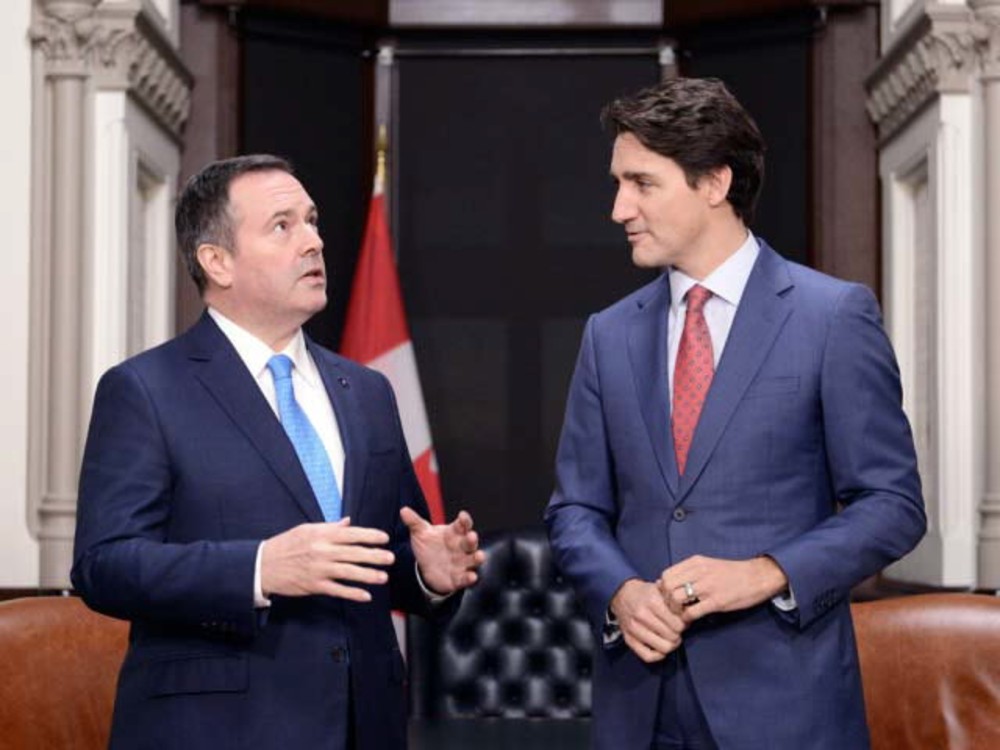It has not happened yet, but it is inevitable that we will have a public debate in Canada about whether, in the words of U.S. President Donald Trump, the restrictions that have been imposed in response to the COVID-19 crisis is a case of “the cure being worse than the disease.” Thankfully, no major Canadian political figure has made such a claim.
However, there are certain pro-business and right-wing voices that have started to make this very case. See, for example, a recent column by Conrad Black or the twitter feed of Brett Wilson. In contrast, despite the restrictions that are already in place, there are some public health professionals and scientists, who argue that existing restrictions might have to last 18 or 24 months and some are demanding even more restrictions. This debate is currently at the margins, but there will be a time — maybe in a couple of weeks; maybe in a couple of months — when the debate goes into the mainstream.
Of course, framing the debate as health care versus the economy is a false choice. Ending restrictions on businesses and public gatherings will not automatically restart the economy. Not if billions of dollars more need to be dedicated to health care to deal with the hundreds of thousands of cases and the tens of thousands of deaths (or more). Likewise, how will businesses function with a workforce and customers depleted due to COVID-19? Or people scared to go to work or shop because of the threat of COVID-19. Likewise, there is plenty of economic activity that needs to occur despite the presence of the COVID-19 pandemic. People still need to eat, so we cannot shut down the agriculture sector and grocery stores. People still need electricity and home heating, so we cannot shut down the energy sector.
Nevertheless, when the rate of increase in COVID-19 cases and deaths starts to slow down or even reverse, there will be calls for restrictions to be lifted. The danger is that we may have just survived the first wave, and the possibility of a second wave intensifies if we move too quickly to reopen society. Conversely, we cannot indefinitely place harsh restrictions on society. At a certain point, some, if not all, are going to need to be lifted.
Regardless of when this debate occurs in a serious way, there are a number of key political science concepts that are going to come into play: authority and legitimacy. Authority is a form of power in which people obey commands not because they have been rationally or emotionally persuaded, or because they fear the consequences of disobedience, but simply because they respect the source of the command. The one who issues the command is accepted as having a right to do so, and those who receive the command accept that they have an obligation to obey. Authority is focused in the one who commands, but legitimacy is the feeling of respect for authority that exists in those who obey — it is what makes authority possible. In other words, people have to trust the source of the command. This is especially critical in times of crisis such as the COVID-19 pandemic.
A major challenge in how the United States is responding to COVID-19 is that many Americans do not trust the leadership of President Trump. His flip-flopping on policies and his narcissism has prevented Trump from taking the leadership role that naturally occurs in crises. The situation is very different in Canada. Even people who strongly oppose Prime Minister Justin Trudeau or Premier Jason Kenney have accepted their decisions. However, this could start to shift if people cease respecting authority. This could be because they do not trust the information provided, do not accept the rationale for severe restrictions, or believe that the decisions issued by authorities are harming them.
Canada has enacted the most draconian restrictions in living memory. The Second World War may have led to the rationing of food, gasoline and other materials, but there were no social distancing requirements. Yet Canadians have largely obeyed these restrictions, because they believe that the orders are coming from a legitimate authority and accept their rationale of responding to the COVID-19 pandemic. The Canadian state simply lacks the coercive power to enforce these restrictions in the absence of voluntary compliance. If you want to see what happens when society does not voluntarily comply with laws, just look at underage smoking and drinking, and, until its recent legalization, cannabis use.
For those who argued that Canada should have acted quicker and closed our borders (stranding Canadians outside of the country) or shutting down schools and restaurants back in January or February, you need to consider whether society would have voluntarily complied at that time.
When the inevitable debate about reopening the economy occurs, a major factor will be whether the existing restrictions can be sustained in the absence of voluntary compliance.
Duane Bratt is a political science professor and chair of the department of economics, justice and policy studies at Mount Royal University.
